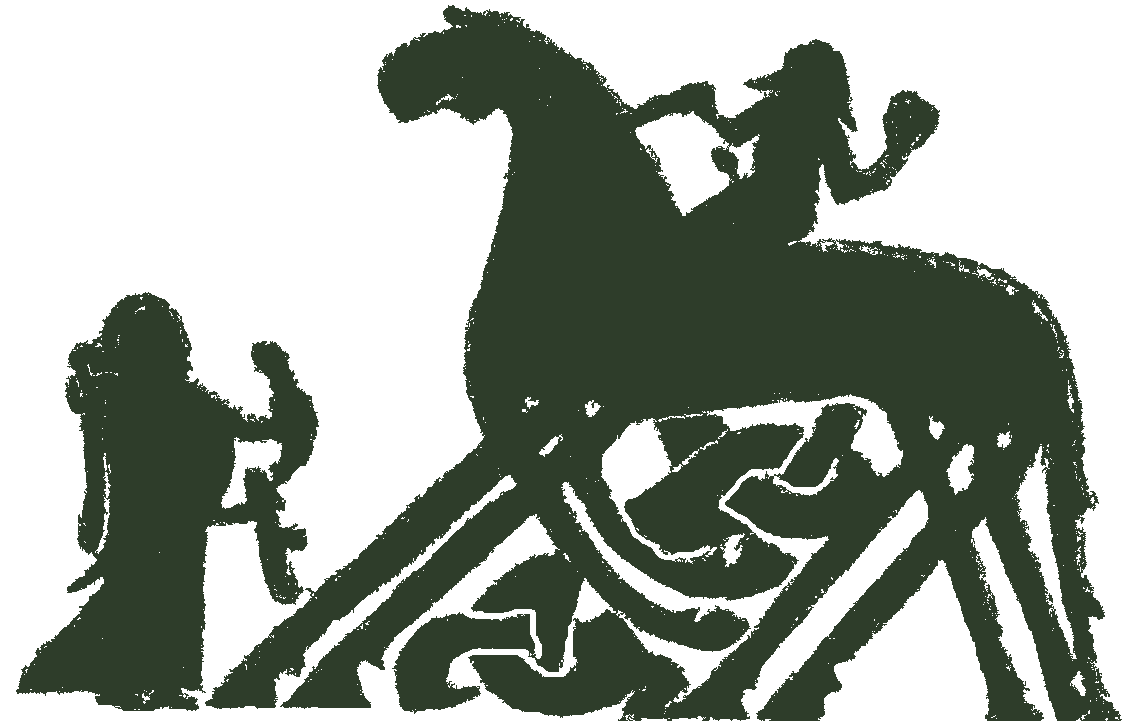in progress
text
Gylf ch. 6b
6b.
Sá er nefndur Búri. Hann var ... | His name was Buri. He was bea... |
[status: unverified copy]
Gylf ch. 9b
9b. Óðinn, Frigg and Þórr
Þar er einn staður er Hliðskj... | In the city there is a seat c... |
[status: unverified copy]
Gylf ch. 17b
17b.
Þar er enn mikill staður er V... | There also is a great place c... |
[status: unverified copy]
Gylf ch. 20c
20c. Óðinn
Óðinn er æðstur og elstur ása... | Odin is highest and most anci... |
[status: unverified copy]
Gylf ch. 24b
24b. Freyja
En Freyja er ágætust af ásynj... | And Freyia is the most glorio... |
[status: unverified copy]
[excerpt from] Gylf ch. 34d
34d.
Þá mælir Gangleri: "Furðu ill... | Then spoke Gangleri: 'It was... |
[status: unverified copy]
commentary
context
Gylfaginning, which is part of Snorra Edda, was composed in Iceland in the 13th century, and holds the stories of many of the Pre-Christian myths of northern Europe. It is believe to have been composed by the Icelander Snorri Sturlusson. Snorra Edda consists of three separate parts, Gylfaginning, Skaldskápamáland Háttatal, all functioning together as a greater work and guide for the aspiring medieval poet and storyteller.
commentary
Óðinn is described as the father of the gods, god of war, death, poetry, magic, wisdom, runes and ecstacy. He lives in Ásrgarðr and sits in his high seat Hlíðskjálft. His wife is Frigg and together they have the son Baldr. With Jörð he fathers Þórr and with Rindr he fathers Vali. He is known by the attributes of the spear Gungnir, by being blind in one eye, by his horse Sleipnir and by carrying a disguising hat and cloak. Óðinn is closely connected with those who die in battle as he awaits those who fall in the great hall Valhöll. His deep knowledge of magic is further strengthened by his shamanistic features in his abilities to change his form and gender as well as soul flight. Óðinn is a god for the elite and those who fight for power and victory and his origin is ancient stretching though the Germanic peoples.
For more, see:
Ellis Davidson, H. R, (1990), Gods and Myths of Northern Europe. London: Penguin Books. pp. 48-72
Rood, J. (2017), 'Ascending the Steps to Hliðskjálf: The Cult of Óðinn in Early Scandinavian Aristocracy'. University of Iceland: Master Thesis.
Simek, Rudolf (2007), Transl: Angela Hall. Dictionary of Northern Mythology. Cambridge: D.S. Brewer. pp. 240-247
Steinsland, Gro (2005), Norrøn Religion. Myter, Riter, Samfunn. Oslo: Pax Forlag. pp. 165-194
(Contributed by Liv Marit Aurdal.)
tags
Main text: Gylfaginning
Attributes: God of war Sacral kingship Battle Hall Silver Honour Death Naming Æsir
Named things:
Text sections: SnSt, Gylf ch. 9b SnSt, Gylf ch. 6b SnSt, Gylf ch. 17b SnSt, Gylf ch. 20c SnSt Gylf 34dIII SnSt, Gylf ch. 24b
